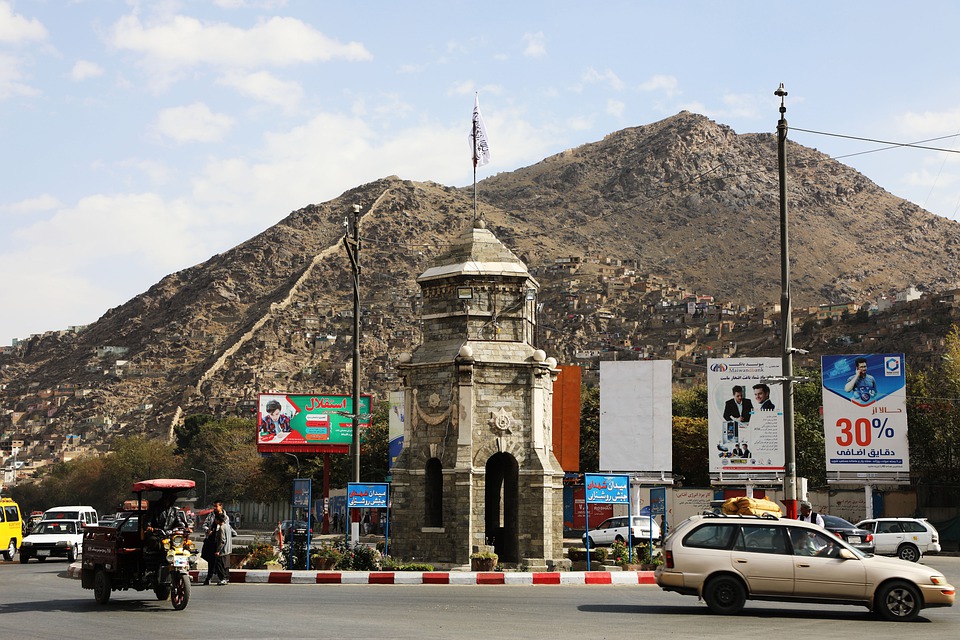The international community has demanded that the Taliban uphold women’s rights, being one of the key issues with the insurgent group’s takeover of Afghanistan last year. A US diplomat has revealed that the Taliban has detained 29 women including their families in Kabul, raising concerns about citizens being detained indefinitely.
US envoy for Afghan women, girls, and human rights Rina Amiri said over the weekend that the Taliban have detained 29 women and their families in the capital of Kabul. Amiri also noted in a post on social media that the Taliban has seized 40 people Friday last week. While the post was eventually deleted, it falls in line with other accounts from sources confirming that a number of women were detained in Kabul.
This follows reports that also on Friday, the Taliban released a group of journalists, two of them foreign nationals, following the international backlash on the news of their detention. The insurgent group also released an activist who was reported to have disappeared following a women’s rights protest, after facing diplomatic pressure including from the UN secretary-general.
Other female activists, however, have not been released. Some of those activists were also taken from their homes in the middle of the night. The Taliban-backed police and interior ministry officials have denied playing a role in their arrests.
Human rights groups have condemned the disappearances, describing the incident as an act of intimidation by the insurgent group. This follows the restrictive policies the Taliban put in place since taking over Afghanistan last year. Among the restrictive policies against women were that girls were not allowed to pursue their secondary education and woman who are not allowed to work in fields outside of education and medicine.
“Every disappearance highlights one of the huge gaps in Afghanistan today, the lack of rule of law,” said Human Rights Watch associate women’s rights director Heather Barr. “This is not how you act when you are trying to be a government, and it highlights the callousness with which they seem to think they can just abduct women and sloppily deny it.”
The collapse of the western-backed Afghan government also affected the radio sector of the country. Hindustan Times reports that 86 radio stations in Afghanistan ceased since the Taliban took over the country. Media watchdog organizations reported that financial and political issues were the major reasons for the collapse of media in Afghanistan.



 Trump Slams Super Bowl Halftime Show Featuring Bad Bunny
Trump Slams Super Bowl Halftime Show Featuring Bad Bunny  Nicaragua Ends Visa-Free Entry for Cubans, Disrupting Key Migration Route to the U.S.
Nicaragua Ends Visa-Free Entry for Cubans, Disrupting Key Migration Route to the U.S.  Trump Allows Commercial Fishing in Protected New England Waters
Trump Allows Commercial Fishing in Protected New England Waters  Netanyahu to Meet Trump in Washington as Iran Nuclear Talks Intensify
Netanyahu to Meet Trump in Washington as Iran Nuclear Talks Intensify  India–U.S. Interim Trade Pact Cuts Auto Tariffs but Leaves Tesla Out
India–U.S. Interim Trade Pact Cuts Auto Tariffs but Leaves Tesla Out  Pentagon Ends Military Education Programs With Harvard University
Pentagon Ends Military Education Programs With Harvard University  Ghislaine Maxwell to Invoke Fifth Amendment at House Oversight Committee Deposition
Ghislaine Maxwell to Invoke Fifth Amendment at House Oversight Committee Deposition  Trump Lifts 25% Tariff on Indian Goods in Strategic U.S.–India Trade and Energy Deal
Trump Lifts 25% Tariff on Indian Goods in Strategic U.S.–India Trade and Energy Deal  Jack Lang Resigns as Head of Arab World Institute Amid Epstein Controversy
Jack Lang Resigns as Head of Arab World Institute Amid Epstein Controversy  Trump’s Inflation Claims Clash With Voters’ Cost-of-Living Reality
Trump’s Inflation Claims Clash With Voters’ Cost-of-Living Reality  Ohio Man Indicted for Alleged Threat Against Vice President JD Vance, Faces Additional Federal Charges
Ohio Man Indicted for Alleged Threat Against Vice President JD Vance, Faces Additional Federal Charges  Israel Approves West Bank Measures Expanding Settler Land Access
Israel Approves West Bank Measures Expanding Settler Land Access  Trump Says “Very Good Talks” Underway on Russia-Ukraine War as Peace Efforts Continue
Trump Says “Very Good Talks” Underway on Russia-Ukraine War as Peace Efforts Continue  Antonio José Seguro Poised for Landslide Win in Portugal Presidential Runoff
Antonio José Seguro Poised for Landslide Win in Portugal Presidential Runoff  Trump Congratulates Japan’s First Female Prime Minister Sanae Takaichi After Historic Election Victory
Trump Congratulates Japan’s First Female Prime Minister Sanae Takaichi After Historic Election Victory  New York Legalizes Medical Aid in Dying for Terminally Ill Patients
New York Legalizes Medical Aid in Dying for Terminally Ill Patients  US Pushes Ukraine-Russia Peace Talks Before Summer Amid Escalating Attacks
US Pushes Ukraine-Russia Peace Talks Before Summer Amid Escalating Attacks 































